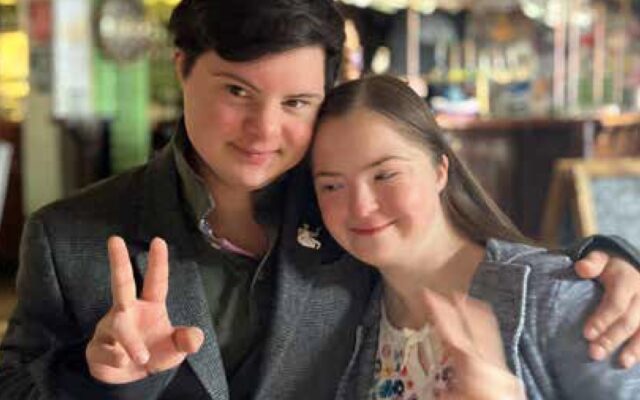 Being disregarded tells people they are not valued
Being disregarded tells people they are not valued
I wonder how many of you have ever felt excluded in the playground, within your family, at work or at a party?
My daughter Rachel was excited for her review and had bought a tin of biscuits for everyone to share. I watched as everyone was offered a cup of tea … except Rachel. Rachel’s eyes darted to invitations for tea that excluded her. We sat down and, just as the first person spoke, I interrupted and asked: ‘Excuse me. Would it be possible for Rachel to be offered a cup of tea?’
No one had noticed that Rachel was the only person who had not been offered a cup of tea or coffee. I wonder how my daughter and other vulnerable people feel, having incidents like this happen to them many times a day, every day of their lives?
I am sharing this story because such incidents have happened to Rachel throughout her life. I can only imagine that being excluded makes her feel of no value to herself and society. What unspoken messages are transferred to a person who is continually ignored and disregarded? Imagine being the only person in the room excluded by people who are being paid to support you. Who is really seeing and valuing the person for whom they are working?
We have to ask: how does someone with a learning disability and autism retain confidence, self-esteem and self-respect while continually being excluded and marginalised throughout their lives? When ‘challenging behaviour’ occurs, professionals write their recommendations and reports; I would suggest that it is the conditions our children are living in that are challenging – conditions over which they have no control or power – and they have no other way to let you know how this makes them feel.
This simple incident has left me feeling both scarred and scared. Scarred because it is yet another incident of well-meaning people ignoring Rachel, in addition to the many similar incidents over many years involving staff, family and society. My mission was to ensure Rachel was included, involved and valued so she could lead a productive and fun life. Sadly, I am failing. This has left me feeling very depressed and disheartened for her future.
I feel scared because who will speak up for Rachel when I die? I will only be able to die in peace if I know that my daughter is truly valued by the people around her. Finally, when are organisations going to put their values into practice in everything they do? At the review when the incident occurred, four senior managers from her service (principal social worker, manager of residential services, operational manager and supported living manager), a London Borough of Barnet social worker, two advocates and mum were present. When are all organisations going to truly value the people they are employed to serve?
Linda Edwards MBE Barnet, Greater London
See people as friends to curtail abuse
I believe one simple instruction could be given to staff that would prevent horrors like those at Winterbourne View and Whorlton Hall: treat each person you support as your friend.
Yet up and down the country, staff are being told you should never befriend someone in your care, never give the person a hug, never share personal information about yourself and never ever invite the person to your home. The result of this policy in extreme cases seems to be that a few staff come to regard some people they support as an enemy to be challenged and controlled at all times.
We need to get back to the positive view of relationships espoused by wise pioneers like Rudolf Steiner, Jean Vanier and John OÕBrien. Friendship and life sharing are safeguards against abuse, not risk factors as policy seems to view them.
Paul Williams Trowbridge, Wiltshire
Lots to read
We’re all absolutely delighted with the book reviews and the Belong manifesto article in the latest issue of Community Living (spring issue, pages 29 and 25). They are both brilliantly written, and it’s fantastic to see references to Beyond Words alongside so much interesting content – the micro-brewery piece was fascinating. Hannah Pimble Publishing and communications manager, Beyond Words, London WC2
Pride – and happy ducks
Thank you for the article about Amy’s duck food table (spring issue, page 21). It made me feel proud.
Bob Barnham (Amy’s dad) Alresford, Hampshire




